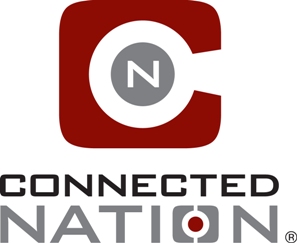 In conjunction with Connect Puerto Rico, a subsidiary of non-profit Connected Nation, the Puerto Rico Broadband Taskforce (PRBT) has released a strategic plan to enhance the island’s broadband infrastructure and improve digital literacy among its residents. Libraries and public computing centers are expected to play an important role.
In conjunction with Connect Puerto Rico, a subsidiary of non-profit Connected Nation, the Puerto Rico Broadband Taskforce (PRBT) has released a strategic plan to enhance the island’s broadband infrastructure and improve digital literacy among its residents. Libraries and public computing centers are expected to play an important role.
“Increasingly, we find that libraries…are becoming technology hubs,” Raquel Noriega, director of public policy for Connected Nation, told LJ. “They are able to serve as a means to access technology and access the Internet by a significant percentage of the population,” including underserved groups such as low-income households, as well as older citizens who, for whatever reason, do not have computers at home.
Broadly speaking, the hope is that enhanced broadband access will improve the productivity of Puerto Rican businesses, strengthen local economies, boost the use of technology in classrooms and even improve access to healthcare, according to a release from Connected Nation, which is conducting several state-level efforts geared toward enhancing broadband access and driving down its cost.
The Puerto Rico Broadband Strategic Plan sets ambitious targets. Goals include improving residential home broadband adoption to at least 50 percent by 2013 and 70 percent by 2015, and “aggressive expansion” of digital literacy programs targeted to vulnerable communities in partnership with existing non-profit institutions, such as libraries. Currently, broadband services are available on 86 percent of the island, yet “only 55 percent of households have a computer and of these, only 31 percent subscribe to broadband Internet. Our goal is to ensure that all Puerto Ricans [have] access to this service today, which is fast becoming an essential tool for growth,” Puerto Rico’s Governor, Hon. Luis G. Fortuño Burset, said in a release.
Local libraries are already taking action to improve access and digital literacy in their own communities, the plan points out, specifically citing a project by the local library of the island’s Vega-Alta municipality. Vega-Alta funded a public computing center in its local library in an effort to offer broadband access and specialized information resources to the local community. Since its inauguration in 2008, the center has proven to be a vital source of outreach and digital training programs.
“Researchers from the Social Science Research Council have found that community based organizations, such as libraries and non-profits, are key institutions in underserved and non- adopting communities—often providing Internet access, training, and support services even when those activities fall outside their traditional missions,” the plan states. “These organizations offer more than just free access to the Internet, they provide supportive environments for reluctant and new users to begin to explore the Internet, become comfortable using it, and develop the skills needed to find, utilize, and create content. While the challenges and opportunities they face vary, these libraries and other community partners are critical to improving the digital proficiency in communities.”
Implementation of the plan is in its infancy, and to this point, Connected Nation and Connect Puerto Rico have primarily worked in a data gathering and consulting capacity to facilitate the development of the plan, Noriega said. But, rollout of the program could be modeled on similar public-private partnerships developed by Connected Nation and its subsidiaries, such as the Every Citizen Online (ECO) project run by Connect Ohio. That project used funds from grants and private sources to supply 2,000 new computers to more than 280 libraries and other public institutions, along with public awareness campaigns to direct people to their local library for access. The result was more than 80,000 training hours for the public.
PRBT is a non-governmental, public-private partnership developed by Juan Eugenio Rodriguez de Hostos, Puerto Rico’s chief information officer, Miguel Reyes Davila, Sandra Torres, president of Puerto Rico’s Telecommunications Regulatory Board, and the Internet Society of Puerto Rico.


